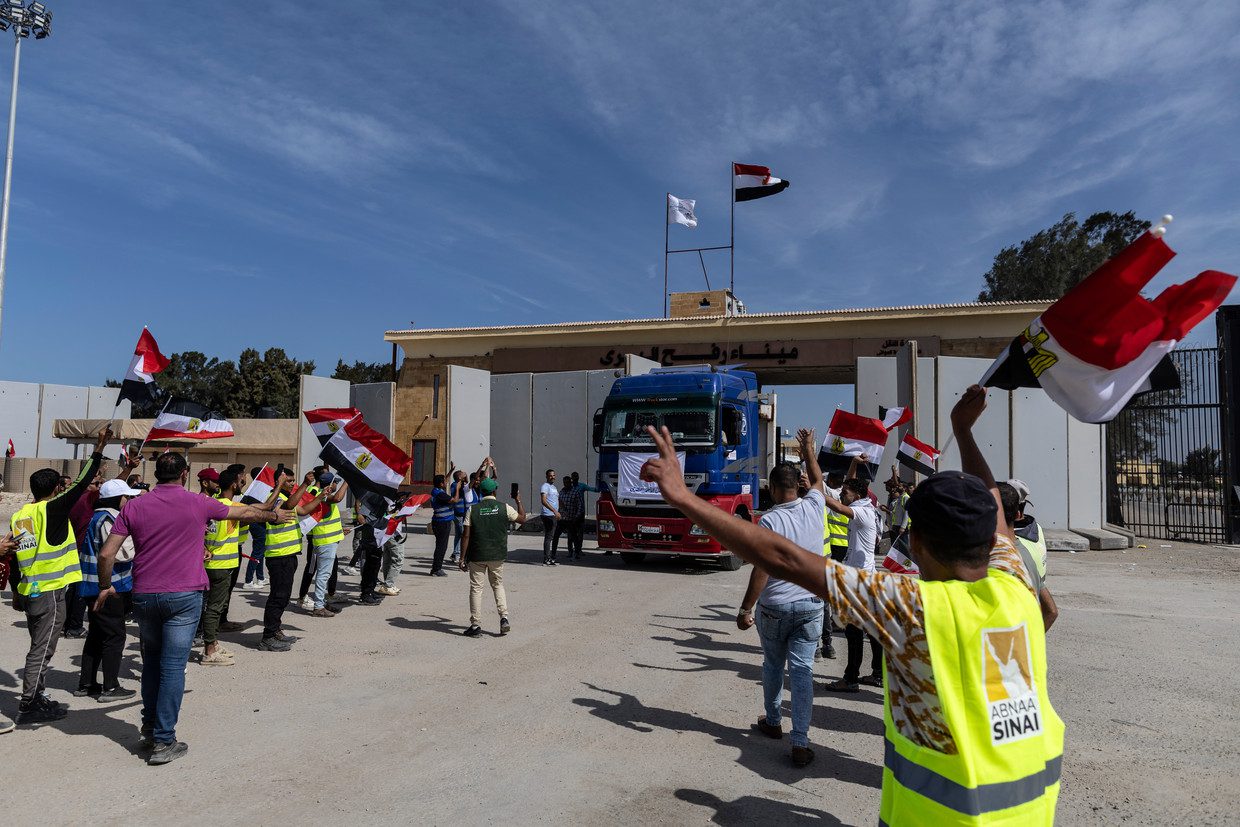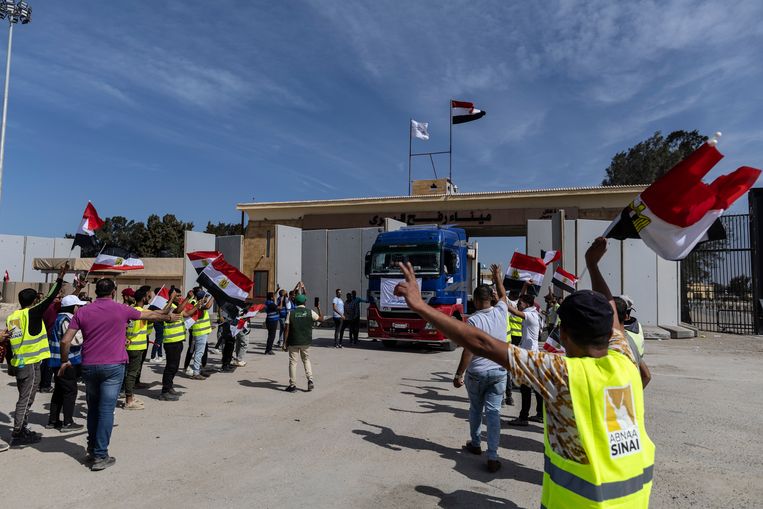
According to Martin Griffiths, the UN aid coordinator, at least 100 trucks a day are needed to meet the worst needs of Gaza residents. Before the war, 450 trucks arrived daily in the Gaza Strip, which relies heavily on international aid.
Israel agreed to send the first aid convoy on the condition that the shipment be searched for weapons and do not reach Hamas. Israel also does not want to allow fuel because it could be used by Hamas. However, according to the United Nations Relief and Works Agency for Palestine Refugees in Palestine, fuel is essential, including for water pumps. Fuel is also needed to run generators used in hospitals after Israel cut off electricity.
According to Al Jazeera, children in incubators and cancer and kidney patients are at risk of death if hospitals are not quickly supplied with fuel. In addition, the last operating desalination plant, which turns seawater into drinkable water, has been closed due to fuel shortages.
Humanitarian aid to the Gaza Strip is hampered by damage to roads caused by Israeli bombing. The situation on the ground is also unsafe: Israel has bombed the Rafah area four times since October 7.
Humanitarian aid is essential
France called for a “humanitarian ceasefire” on Saturday morning to supply Gaza with supplies. On Friday evening, Defense Minister Ollongren called for a ceasefire to allow humanitarian aid to pass through. António Guterres, Secretary-General of the United Nations, also wants the fighting to stop to provide aid to the people of Gaza. Guterres said that at the Rafah border crossing, “you see full trucks on one side, and empty stomachs on the other side.” The World Health Organization wanted a humanitarian truce and unlimited supplies of aid to the Gaza Strip.
UN Coordinator Griffiths said he was confident that the first trucks on Saturday would mark the beginning of a “sustained effort to provide the people of Gaza with basic supplies – including water, medicine, food and fuel.” According to Griffiths, the humanitarian situation in Gaza, which was already precarious before the war, has now reached catastrophic levels. “The people of Gaza have endured decades of suffering. The international community cannot abandon them now.”
Humanitarian aid was also discussed during the peace summit of Arab and European leaders held in Cairo on Saturday. The summit meeting did not yield any tangible results, due to the absence of the main participating countries, Israel, the United States, and Iran.
Increased dissatisfaction
However, the statements of European and Arab leaders reflected the growing dissatisfaction with Israel’s actions. After the Hamas attack on October 7, European leaders expressed their support for Israel. Two weeks later, after the continued bombing and siege of the Gaza Strip, the Europeans began to criticize Israel. European Union President Michel described the siege imposed on the Gaza Strip as inconsistent with international law. Michel said that Israel has the right to defend itself, but it also has a duty to protect civilians and infrastructure as much as possible. British Foreign Secretary Cleverley called on the Israeli army to exercise restraint. Michel and Italian Prime Minister Meloni called for a two-state solution that should lead to a separate state for the Palestinians.
Pro-Western Arab countries such as Egypt and Jordan also strongly criticized Israel’s actions. Egyptian President Sisi said, “Liquidating the Palestinian issue is not within the scope of possibility, and it will certainly not be done at Egypt’s expense,” referring to the possibility of expelling the Palestinians from the Gaza Strip to the Egyptian Sinai desert. The speeches of Sisi and Jordanian King Abdullah bear witness to the growing anger in the Arab world, including countries that have long made peace with Israel, and the increasing isolation of the Jewish state.

“Infuriatingly humble social media buff. Twitter advocate. Writer. Internet nerd.”








